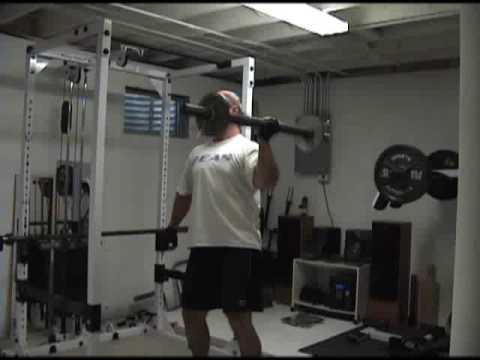Overall, great advice. You contradicted yourself with several things you said and there are some points that I wouldn’t agree with 100% based on the limited information we have from the OP. But overall great advice.
[quote]The Student wrote:
Ok, I’d like to try and help. Take anything I say with a grain of salt, as my education comes from some reading, but mostly from my own experience and my own experience involves dislocating my shoulder more times than I can count. I have learned that our bodies talk to us, so we have to learn what they are saying. Any form of pain or discomfort is definitely a red flag. I never had a strong back, genetically, and the first thing I ever did when I stepped into a gym was what everybody else was doing: bench press. This threw my shoulder balance even more off than it was genetically. The more my shoulder dislocated the weaker it healed and the easier it would pop out in the future, and I mean easy. PLEASE stop doing what hurts and find the cause. I don’t think a regular doctor can help you. I’m not sure where you live, but if you must see someone make sure it’s someone the likes of Eric Cressey. Someone who promotes good health as well as strength. Good mobility as well as stability. Results as well as longevity.
[/quote]
Nothing wrong with this part. I agree, a general practitioner will probably not be the best physician to seek out. Find an orthopedic physician who has experience with shoulders specifically. I also definitely agree with finding somebody with experience with S&C aspects for upper extremity athletes or athletes with upper extremity injuries (Cressey, etc).
[quote]
As for my advice: drop all benching exercises. Work on your anterior seratus, work on your traps and anything else you’d like on your back. How are your scapulas? Most people’s scaps tilt down. Don’t do any exercises that promote downward scapular rotation. Do the ones that promote upward rotation. How’s your external rotation? Do wall scapular slides (correctly). Do scap push ups. Next time you watch a boxing match, look at their back. Boxers have ideal backs. Does your back resemble theirs? If it doesn’t, you need work. I would bet that their shoulders don’t hurt. So back off from pushing and get more on pulling. Atleast for a month if not two. Focus on fixing this. It will be worth it. [/quote]
Not knowing his specific problem, I wouldn’t say to ditch the bench press all together. Just do not rely as heavily on it. Alternate some push-up variations instead to get some better serratus recruitment and advocate a better scapular rhythm during pressing movements.
The biggest problem with your response here is that we do not know which direction his dislocation occurred. Was it anterior? Posterior? Inferior? Depending on which direction his dislocation occurred, that will point to where his laxity/structural issue is located and what he needs to work on.
Also, you stated for him not to do exercises that promote downward scapular rotation and recommended doing those that promote upward rotation instead. But then you recommended Wall Slides, where if done properly, you are going to hold your scap in a depressed (downward rotated) and retracted position. You asked about his external rotation as well. If he is dislocating anteriorly (which we don’t know if he is or isn’t), he will want to avoid excessive passive movement into external rotation due to the fact that with an anterior dislocation there is a very high degree of laxity in the anterior capsule of his shoulder. During external rotation, especially if the scapula is not retracted and depressed properly, the humeral head will translate forward and cause more stress on the anterior capsule, cause more damage, and possibly cause another subluxation/dislocation episode.
More than likely he does need to work more pulling than pushing (most of the training population does), especially focusing on the scapular stabilizers, retractors, depressors, etc. But it isn’t as simple as just saying “stop pressing and start pulling”.
Again, not a bad response, but just a few things I wanted to clear up since there are several directions the shoulder dislocates and each one will be approached in a different manner.
To the OP, any update from the physician and on the shoulder?
